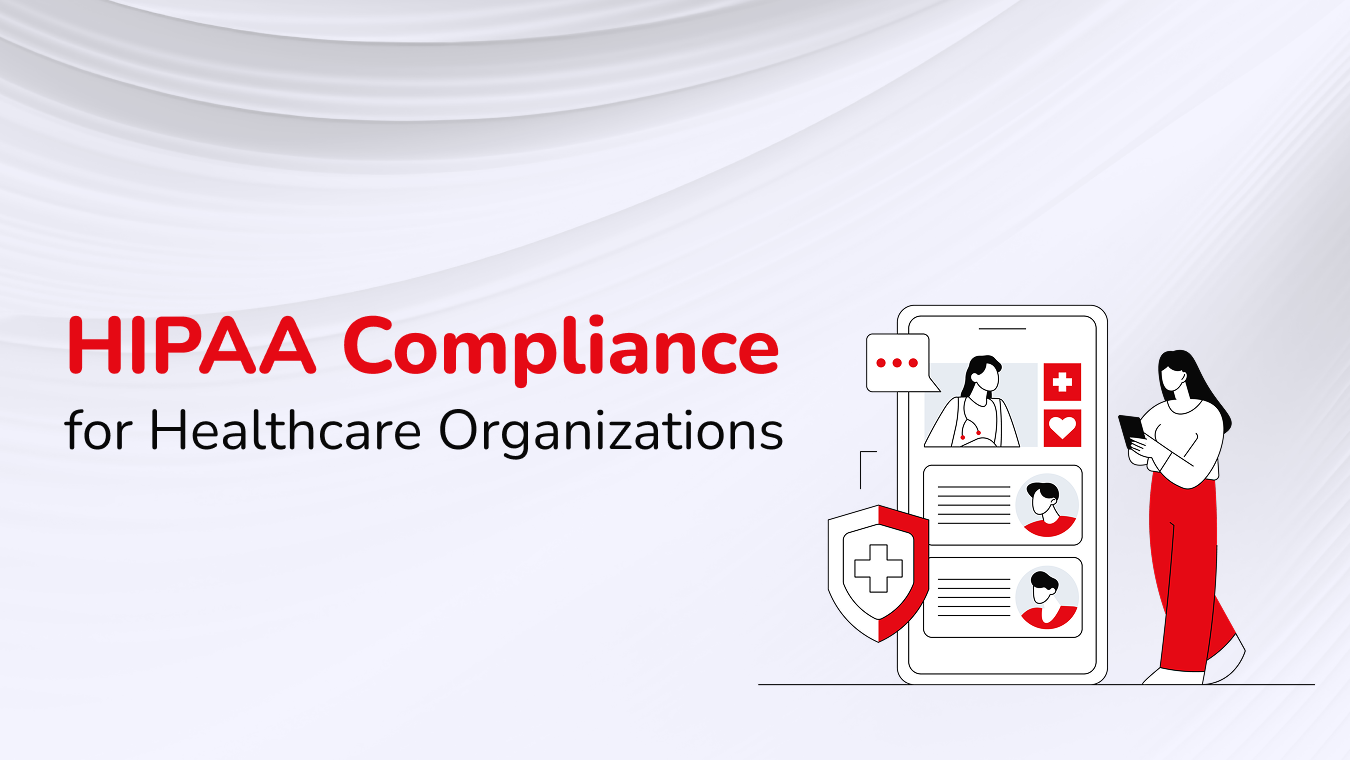- What Is HIPAA, and Why Should Your Business Care?
- Why it matters to businesses:
- Who Must Comply?
- Key Rules You Need to Understand
- HIPAA Compliance Checklist for Companies
- What Are the Risks of Non-Compliance?
- In addition to penalties, businesses face:
- Strategic Advice for Healthcare Vendors and Startups
- Final Words: Compliance is Your Competitive Advantage
- Why Choose Azpirantz for HIPAA Compliance?
HIPAA Compliance for Businesses: What Every Healthcare-Focused Organization and Vendor Must Know
In the evolving digital landscape, data privacy isn’t optional—it’s a legal and reputational necessity.
For businesses that are directly in healthcare or serve clients in the U.S. healthcare sector, HIPAA compliance for businesses is a critical obligation. Whether you’re a hospital, a SaaS provider handling patient records, or a cloud storage vendor for a healthcare app, if you process Protected Health Information (PHI), HIPAA applies to you.

This guide breaks down what HIPAA means for your business and how you can proactively ensure compliance and avoid common (and costly) mistakes.
HIPAA (Health Insurance Portability and Accountability Act) is a U.S. federal law enacted in 1996. Its primary objective is to:
- Protect the privacy and security of patient health data
- Ensure standardization in handling electronic health records (EHR)
- Enable patients to control how their health data is used
HIPAA violations can result in penalties of up to $1.5 million/year per type of violation — but more importantly, they erode trust, damage your brand, and can break partnerships or contracts.
HIPAA applies to:
Covered Entities (U.S.-based)
Organizations that create, receive, or transmit PHI directly:
- Hospitals and clinics
- Health insurers and HMOs (Health Maintenance Organizations)
- Health clearinghouses
Business Associates (India-based vendors)
Any organization working with a covered entity and accessing PHI:
- Cloud platforms and hosting providers
- Medical billing or transcription services
- Telehealth and AI-healthcare startups
- IT support, analytics, or CRM tools processing PHI
If your product or service touches PHI in any form — even indirectly — you’re expected to be HIPAA compliant and meet HIPAA requirements for vendors.
- Privacy Rule
Controls how PHI is collected, shared, and accessed
Gives patients rights to their data, including access and amendment
Requires minimum necessary use of PHI - Security Rule
Requires administrative, physical, and technical safeguards for electronic PHI (ePHI)
Includes encryption, access controls, role-based permissions, and data integrity controls - Breach Notification Rule
Mandates reporting of security incidents or data breaches within 60 days
Involves notifying affected individuals, the U.S. Department of Health and Human Services (HHS), and sometimes the media - Enforcement Rule
Details penalties, investigations, and procedures for violations
These are the HIPAA privacy and security rules explained in practice.
Whether you’re a startup or an established organization, here are the essential steps your company must take—a comprehensive compliance checklist for healthcare vendors:
- Conduct a Comprehensive Risk Assessment
Identify all systems, applications, and vendors that store or transmit PHI
Assess internal processes, cloud infrastructure, endpoint access, and 3rd-party integrations
Consulting Tip: Have a third-party conduct your initial risk assessment for objectivity and best practices alignment. - Implement Technical Safeguards
Encrypt PHI at rest and in transit
Enable multi-factor authentication (MFA)
Use audit logs to monitor access and changes
Limit access through RBAC (Role-Based Access Control)
What we recommend: Secure configuration baselines (e.g., CIS benchmarks), periodic penetration testing, periodic access reviews, and least-privilege access policies - Formalize Administrative Policies
Draft clear internal policies for PHI handling
Define incident response protocols
Appoint a HIPAA compliance officer
Training advice: Conduct periodic training, phishing simulations, and HIPAA awareness sessions for all staff - Execute Business Associate Agreements (BAAs)
Sign business associate agreement (BAA) essentials with all third-party vendors that handle PHI on your behalf
Ensure vendors also follow HIPAA standards
Common pitfall: Using cloud providers without a valid BAA — even compliant vendors like AWS or Google require formal agreements - Establish a Breach Notification Plan
Create a step-by-step incident response plan
Define internal and external communication protocols
Test the plan annually
Best practice: Incorporate HIPAA breach response into your broader cyber resilience strategy
HIPAA is heavily enforced by the Office for Civil Rights (OCR). The financial and reputational risks include:
| Violation Type | Penalty Range |
|---|---|
| Unknowing | $100 – $50,000 per violation |
| Reasonable cause | $1,000 – $50,000 |
| Willful neglect (corrected) | $10,000 – $50,000 |
| Willful neglect (uncorrected) | Up to $1.5 million annually |
- Contract termination or loss of certifications
- Loss of B2B deals (especially with hospitals and insurers)
- Customer churn and bad press
- Build privacy and security into product design from day one (Privacy by Design)
- Maintain compliance documentation and audit trails to show due diligence
- Evaluate and monitor third-party vendors regularly
- Consider obtaining HITRUST certification or ISO/IEC 27001 for added assurance
Understanding healthcare vendor HIPAA obligations helps protect data and business relationships alike. This also reinforces protecting PHI for third-party partners as a shared responsibility.
HIPAA compliance for businesses isn’t just about avoiding fines, it’s a business differentiator.
By demonstrating security and privacy maturity:
- You gain trust in highly regulated sectors
- You reduce risk exposure
- You position your company for long-term growth and partnerships
Navigating HIPAA regulations can be complex—especially for vendors, startups, and global partners in the healthcare ecosystem. Azpirantz brings deep industry expertise and end-to-end support to help your organization achieve and maintain compliance with confidence.
Whether you’re conducting your first risk assessment, managing multiple vendors, or needing airtight business associate agreements, Azpirantz delivers practical, audit-ready solutions tailored to your business. Our team ensures you’re not just compliant—but prepared, secure, and trusted in the healthcare space.
Partner with Azpirantz and simplify your path to HIPAA compliance: https://www.azpirantz.com
We're Here To Help